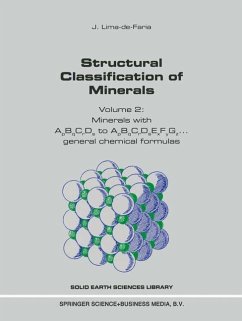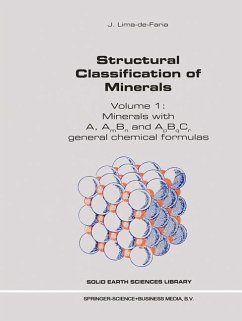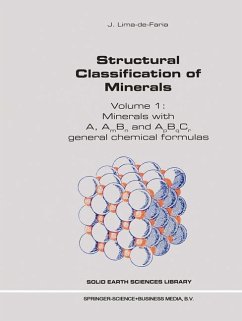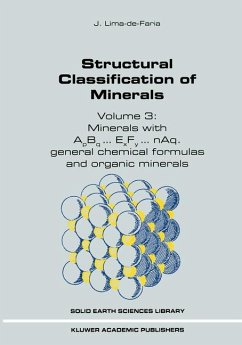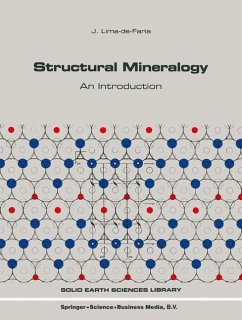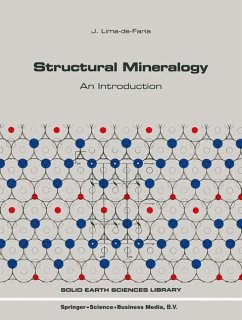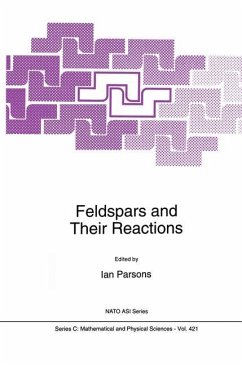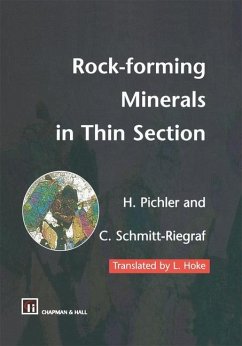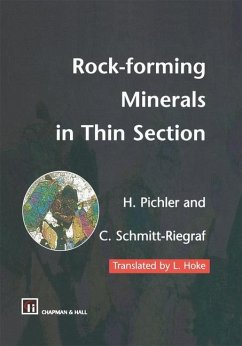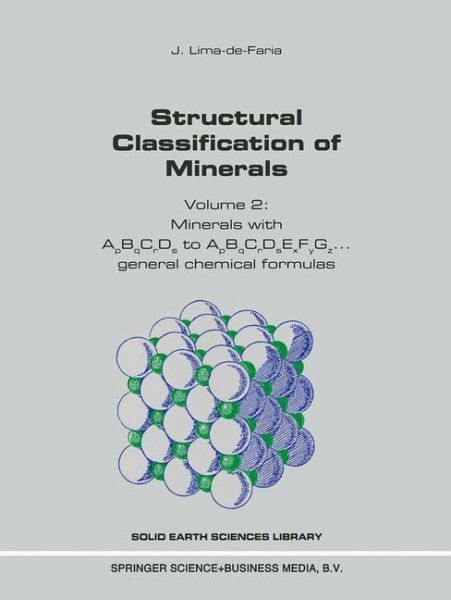
Structural Classification of Minerals
Volume 2: Minerals with ApBqCrDs to ApBqCrDsExF
Versandkostenfrei!
Versandfertig in 6-10 Tagen
76,99 €
inkl. MwSt.
Weitere Ausgaben:

PAYBACK Punkte
38 °P sammeln!
We have used in Vol.2 the same structural scheme similar they are organized alphabetically, just for as used in Vol. 1. convenience in consulting.The alphabetical order We used as the list of minerals the reference is provisional, it is not an important aspect of the book Mineral Reference Manual by Nickel and classification, and willtend to disappear. Nichols, edited by Van Nostrand Reinhold, New In Vol. 1 some condensed model sheets were York, 1991, and we first organized the minerals by presented to illustrate the simplicityof the patterns chemical formulas, from the simpler to the more of ...
We have used in Vol.2 the same structural scheme similar they are organized alphabetically, just for as used in Vol. 1. convenience in consulting.The alphabetical order We used as the list of minerals the reference is provisional, it is not an important aspect of the book Mineral Reference Manual by Nickel and classification, and willtend to disappear. Nichols, edited by Van Nostrand Reinhold, New In Vol. 1 some condensed model sheets were York, 1991, and we first organized the minerals by presented to illustrate the simplicityof the patterns chemical formulas, from the simpler to the more of the packing layers of the A, AmB and ApBqC n r complex (Tables 73 to 172), as presented on page close-packed minerals (Tables lL to 17Lof Vol.1). 1of Vol.1.The results of the structural studywere The aim was to stimulate the complete systematic ordered by structural formulas (Tables 27S to derivation of the simple mineral close-packed 59S). Then we summarized the classified structure structures, as was tried by the author (Lima-de types (not including the tentatively classified) in Faria (1965) Zeit. Krist., 122, 359-374). In Vol. 2 Tables 60S to 61S. Finally we presented some the layers are more complex and the correspond global results (Tables 62S and 63S). ing condensed models sheets were not included. In certain cases the general chemical and the The reader should refer to the book Structural structural formulas may be difficult to compare.





